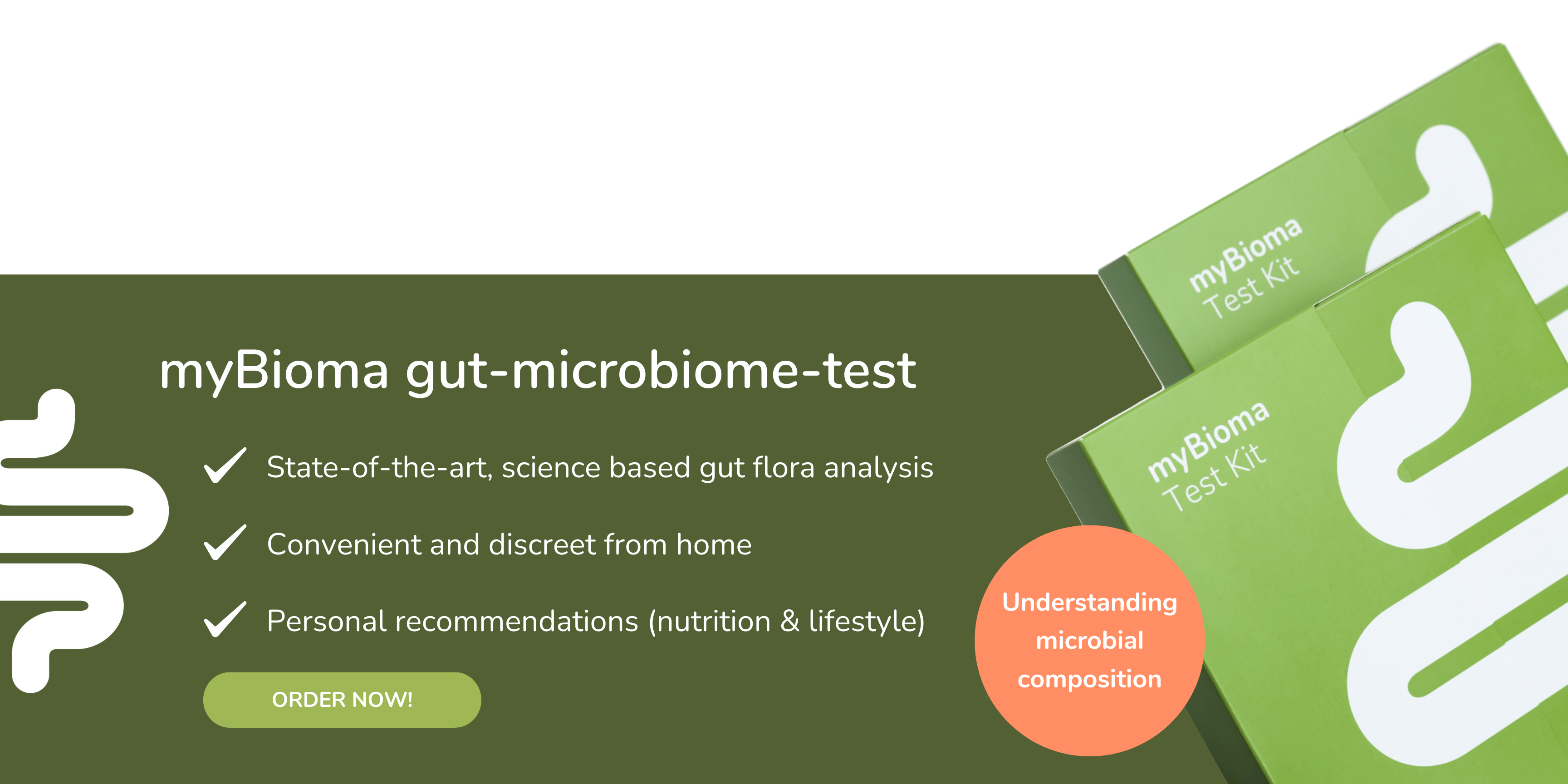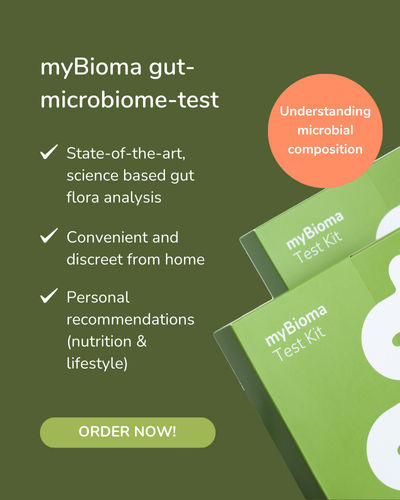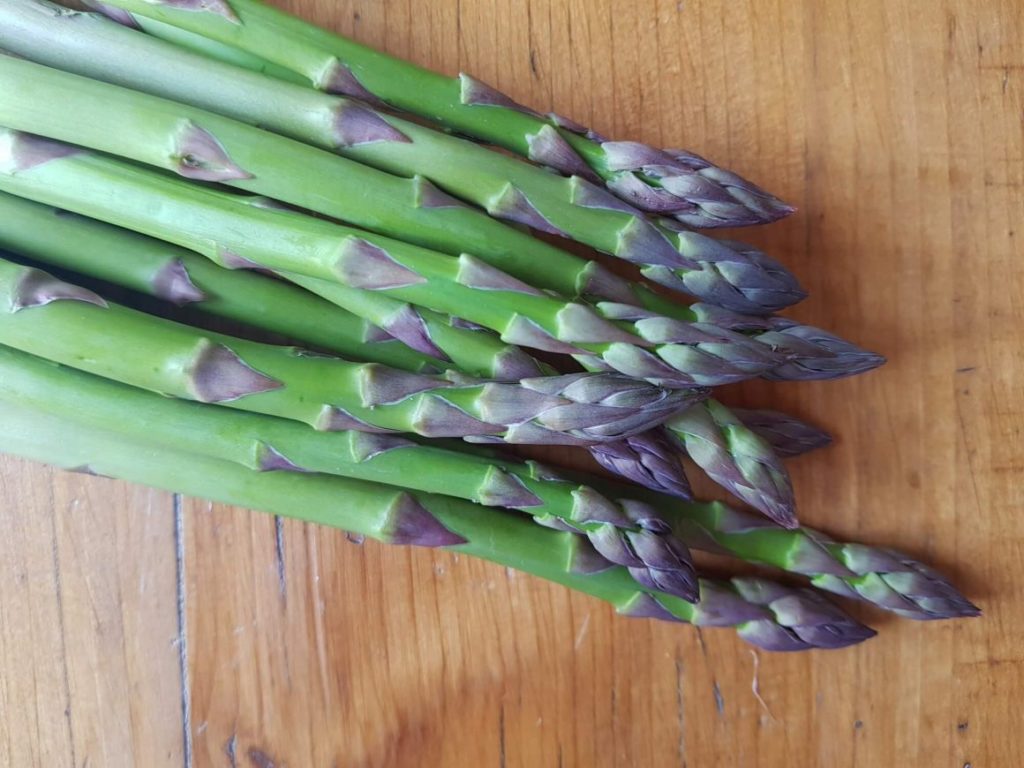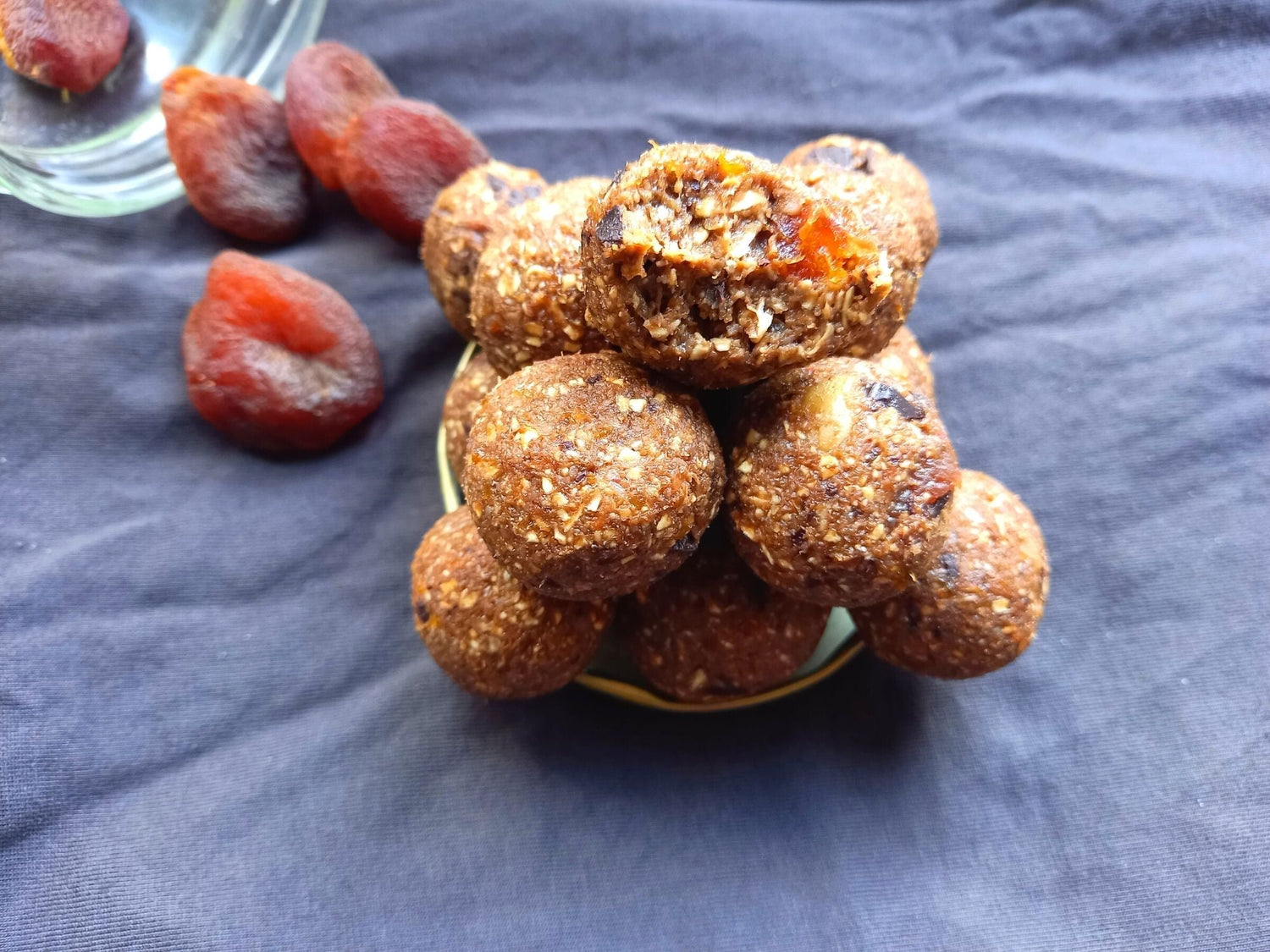Table of contents
- Or to put it another way: What does your running session have to do with the microbiome?
- Weight loss, health and feelings of happiness: And all of this through exercise?
- Power through our microbiome: But how?
- The positive influence of exercise on our microbiome!
- Cardiorespiratory fitness influences our microbiome!
- Sport and the slimming bacteria...
Or to put it another way: What does your running session have to do with the microbiome?
That ours Intestinal bacteria an important role in various functions such as immune defense , the nutrient absorption , as well as in energy production and vitamin production (1), play, is probably already familiar to you by now. However, today we would like to look at the connection between exercise/sport and our microbiome.
Weight loss, health and feelings of happiness: And all of this through exercise?
Exercise helps you lose weight, is good for our health and our body (usually) gives us feelings of happiness. We know all this, but how does exercise affect our microbiome? Have sporty people or even top athletes compared to “couch potatoes” are different microbial composition ? How does that work? Diversity of the microbiome on the athletic performance out of?

How about a run or walk this evening?
Power through our microbiome: But how?
When we don't feel good, whether physically or mentally, we can rarely perform as well as we would when we were healthy. Since the microbiome influences the immune system, intestinal mucosa and brain health, this can also affect the well-being of athletes and their sporting performance (2-4). It has also been found that athletes have a higher diversity and increased abundance of health-promoting bacterial species (2, 5, 6). It can therefore be concluded that sport has a positive influence on our microbiome. Clark could do this too et al. as rugby players had a higher microbiome diversity compared to slim, sedentary people (6). And what is that again? Diversity ? It describes the diversity of the microbiome and whether the different types of bacteria occur evenly in the intestine or whether some types of bacteria dominate. High diversity is associated with health and, conversely, low diversity is correlated with many different diseases. Therefore, the goal of every person - whether athlete or non-athlete - should be a high level of diversity.
The positive influence of exercise on our microbiome!
Petersen et al , looked at the gut microbiome of cyclists. It turned out that the amount of exercise reported during the average week was positively related to the abundance of the bacterial genus Prevotella was associated. In addition, Prevotella appeared to be positively correlated with metabolic pathways for carbohydrates as well as for amino acids, including the Branched Chain Amino Acids (=BCAA) to stand (5). The term BCAA is primarily known among athletes. These are branched amino acids that must be absorbed by the body because the body cannot produce them. The proteinogenic amino acids Valine, leucine and Isoleucine are BCAAs. It can therefore be assumed that the microbiome changes for the better depending on the amount of exercise and that this particularly affects the metabolism of carbohydrates and amino acids. By the way, Barton also have it et al. found that athletes have higher amino acid biosynthesis and carbohydrate metabolism as well as more short-chain fatty acids compared to non-athletes (2). A higher amino acid biosynthesis is therefore advantageous because it results in a better Muscle building can mean. Short-chain fatty acids are produced by the fermentation of indigestible fibers by gut bacteria and are absorbed by the cells of the intestinal epithelium. This strengthens the barrier function of the intestinal wall as well as the immune system (7).

The Barton et al. Compared to non-athletes, the athletes examined had higher amino acid biosynthesis, increased carbohydrate metabolism and more short-chain fatty acids (2).
Cardiorespiratory fitness influences our microbiome!
However, not only in top athletes, but in every healthy person, higher cardiorespiratory fitness can have a positive effect on the microbiome Diversity and the production of short-chain fatty acids impact (3). In addition, the connection between cardiorespiratory fitness and the relationship was shown in young people Firmicutes/Bacteroidetes (8th). Cardiorespiratory fitness, even under the maximum oxygen uptake known, is a measure that describes the ability to transport oxygen from the air into our muscles. Anyone who has a high maximum oxygen uptake provides their muscles with a lot of oxygen to generate energy and increases their energy Performance . Maximum oxygen uptake can be improved through training.
Sport and the slimming bacteria...
Another study compared active women with sedentary women. The study found that women who exercised at least 3 hours per week had higher levels of Butyrate producers (Faecalibacterium prausnitzii, Roseburia hominis) and Akkermansia muciniphila , the bacterium that is more likely to be found in slim people (9).
Mailing et al . postulate that Movement the fecal butyrate concentration (= short-chain fatty acids concentration) increases and pro-inflammatory cytokines and oxidative stress in the intestines reduced . Aside from that, exercise generally provides whole-body health benefits by protecting against anxiety, inflammatory bowel disease, and colon cancer (10).

Sport has a positive influence on the microbiome and in turn the microbiome influences athletic performance.
In summary it can be said that through Movement the Diversity of the microbiome increases, the ratio of Bacteroidetes/Firmicutes improved, the Proliferation of beneficial bacteria is boosted and more short-chain fatty acids are formed by bacteria. Sports influences that Microbiome positive and in turn the microbiome has an influence on it athletic performance . Since athletes produce a lot of free radicals, it is even more important to have a good immune system. In addition, athletes require much more energy and strive for good energy production. Since our microbiome influences our immune system, energy production and general gastrointestinal health, this has an impact on our sporting performance. Therefore you can with Movement Do something good for your microbiome and, conversely, promote your sporting performance by improving your microbiome with a healthy and balanced diet keep fit.
So maybe you want to swap your cozy blanket for your sports shoes today, your microbiome will thank you! If you would like to know what is going on with yours personal microbiome you can do this using a health check Find out from the comfort of your own home.
References
- Mohr AE, Jäger R, Carpenter KC, Kerksick CM, Purpura M, Townsend JR, et al. The athletic gut microbiota. Journal of the International Society of Sports Nutrition. 2020;17(1):24-.
- Barton W, Penney NC, Cronin O, Garcia-Perez I, Molloy MG, Holmes E, et al. The microbiome of professional athletes differs from that of more sedentary subjects in composition and particularly at the functional metabolic level. 2018;67(4):625-33.
- Estaki M, Pither J, Baumeister P, Little JP, Gill SK, Ghosh S, et al. Cardiorespiratory fitness as a predictor of intestinal microbial diversity and distinct metagenomic functions. Microbiome. 2016;4(1):42.
- Clark A, Mach N. Exercise-induced stress behavior, gut-microbiota-brain axis and diet: a systematic review for athletes. Journal of the International Society of Sports Nutrition. 2016;13(1):43.
- Petersen LM, Bautista EJ, Nguyen H, Hanson BM, Chen L, Lek SH, et al. Community characteristics of the gut microbiomes of competitive cyclists. Microbiome. 2017;5(1):98.
- Clarke SF, Murphy EF, O’Sullivan O, Lucey AJ, Humphreys M, Hogan A, et al. Exercise and associated dietary extremes impact on gut microbial diversity. Gut. 2014;63(12):1913-20.
- Allen JM, Mailing LJ, Niemiro GM, Moore R, Cook MD, White BA, et al. Exercise Alters Gut Microbiota Composition and Function in Lean and Obese Humans. Medicine and science in sports and exercise. 2018;50(4):747-57.
- Ryan PD, Esperanza C, Leticia M-M, Gregory JG, Nicole DB, Lee CM, et al. Gut Microbiota Composition Is Related to Cardiorespiratory Fitness in Healthy Young Adults. International Journal of Sport Nutrition and Exercise Metabolism. 2019;29(3):249-53.
- Bressa C, Bailén-Andrino M, Pérez-Santiago J, González-Soltero R, Pérez M, Montalvo-Lominchar MG, et al. Differences in gut microbiota profile between women with active lifestyle and sedentary women. PloS one. 2017;12(2):e0171352-e.
- Mailing LJ, Allen JM, Buford TW, Fields CJ, Woods JA. Exercise and the Gut Microbiome: A Review of the Evidence, Potential Mechanisms, and Implications for Human Health. Exercise and sport sciences reviews. 2019;47(2):75-85.








